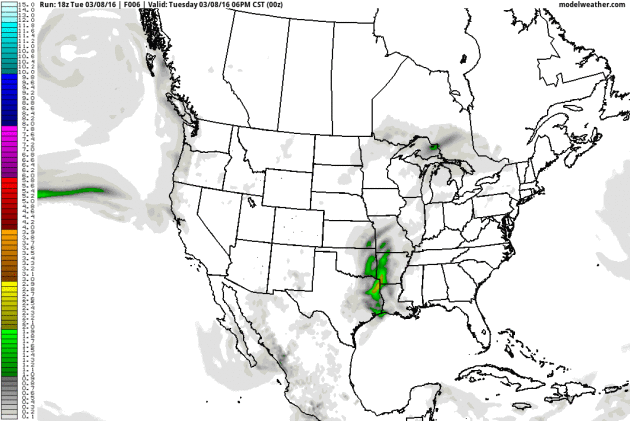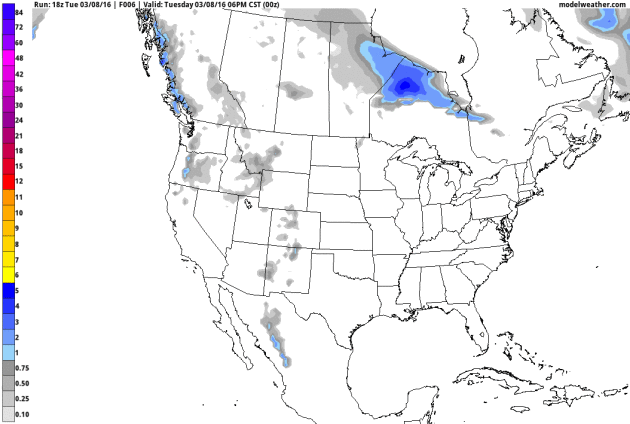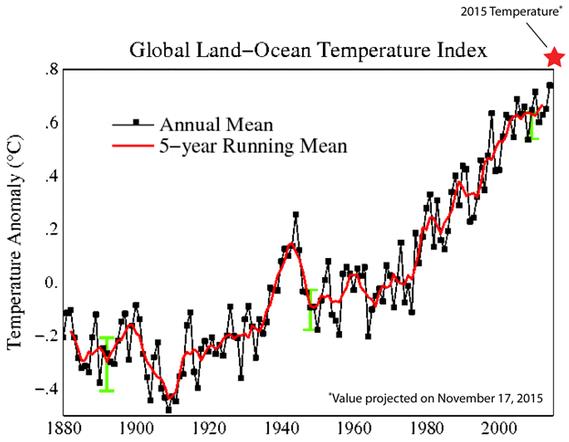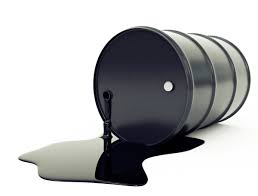70 F. high in the Twin Cities Tuesday, breaking the old record high of 69 F. in 2000.
37 F. average high on March 8.
48 F. high on March 8, 2015.
March 9, 1918: A snowstorm hits Minnesota and dumps nearly 11 inches at the Twin Cities.
Early Spring Break: More "All or Nothing" Winters?
Love it or hate it, Minnesota's fast-forward spring continues to turn heads. "Is this due to a jumbo El Nino, or something more?"
Love it or hate it, Minnesota's fast-forward spring continues to turn heads. "Is this due to a jumbo El Nino, or something more?"
As
one climate scientist explained: El Nino is the equivalent of climbing
up a flight of steps, then standing on your tip-toes. If you ignore the
stairs you're missing the bigger picture.
Looking at broader trends Minnesota's winters will continue to trend milder over time. Not ever winter, but most.
Two
years ago we still had 15 inches of snow on the ground. 2012 saw
80-degree heat in mid-March. Flowers were blooming; boats in the water
by April 1.
Our rush into spring won't be quite that abrupt and jaw-dropping, but
this looks a lot more like 2012 than 2014. Pack away the parkas, keep a
jacket handy.
Cooler
Canadian air dribbles south today; highs near 50F - still 10F warmer
than average. Another pulse of Pacific air warms us up to 60F Friday before a swirl of southern moisture pushes showers into town late Saturday into Monday.
I can't quite believe I'm saying this - in March - in Minnesota - but it should be cold enough for snow in 8 days.
*
According to the Twin Cities office of the National Weather service the
Twin Cities experienced the 8th warmest meteorological winter in 144
years of record-keeping; 7th warmest for St. Cloud - 6th warmest at
International Falls.
Warm Weather Stats.
The Twin Cities reached 70 degrees Tuesday afternoon. The average high
for March 8 is 37 F. This is a new record for the Twin Cities (previous
record was 69 F. in 2000). It's the 3rd earliest 70-degree temperature
on record for MSP. The last 70-degree day in the metro was November 3,
2015. That's 126 days since the last 70, the second shortest gap on
record, according to NOAA. The record is 113 days, from 11/3/1999-3/5/2000.


Warmest Winter on Record for the USA. Following the warmest year on record (2015), which broke the previous record for warmth (2014), when there was no El Nino to blame - or thank. It must be another coincidence. Here's an excerpt from NOAA NCDC: "The strong El Niño that was present in the Equatorial Pacific interacted with other climate patterns to influence U.S. weather conditions during winter and February. The December-February average temperature for the contiguous U.S. was 36.8°F, 4.6°F above the 20th century average, surpassing the previous record of 36.5°F set in 1999/2000. The exceptionally warm December boosted the contiguous U.S. winter temperature. The February temperature for the contiguous U.S. was 39.5°F, 5.7°F above the 20th century average, ranking as the seventh warmest on record and warmest since 2000..."
Houston's Perfect Storm.
How much risk are you willing to live with? At some point the law of
averages catches up with you, whether you live in Houston, New Orleans,
Miami or New York City. Here's the intro to a story at The Atlantic: "It
is not if, but when Houston’s perfect storm will hit. They called Ike
“the monster hurricane.” Hundreds of miles wide. Winds at more than 100
miles per hour. And—deadliest of all—the power to push a massive wall of
water into the upper Texas coast, killing thousands and shutting down a
major international port and industrial hub..."
Photo credit above: "A resident removes a sign from the coast as Hurricane Ike approaches in Galveston, Texas in September 2008." Carlos Barria / Reuters.
Are 500 Years of Shipwrecks The Key to Forecasting Hurricanes? If only it were that simple. Here's an excerpt of an interesting perspective at CSMonitor.com: "Shipwrecks
in the Caribbean have been used as an indication of hurricane activity,
finds new research that could shed light on the relationship of global
warming and these storms. The study, published Monday in the Proceedings
of the National Academy of Sciences, considered records of Spanish
shipwrecks in the region and correlated those with tree-ring records.
The results found a staggering drop in hurricane activity of 75 percent
in the years 1645-1715, coinciding with lower sunspot activity and
cooler temperatures on Earth, providing important insights for future
weather forecasts..."
For Weather Forecasting, Precise Observations Matter More Than Butterflies. Here's a clip from an interesting read at EurekaAlert: "...It's
not necessary to create a dense network of observing stations to
measure the atmosphere at finer and finer scales, Durran said. Instead
of sweating the small stuff, he says, scientists need to improve the way
they assimilate, or input, existing observations of the atmosphere on
horizontal scales between 100 and 300 miles (160 to 480 km) in order to
start local-area forecasts with the best possible description of the air
circulating..."
Photo credit above: "Photo
of a thunderstorm in Owens Valley, California. The butterflies
superimposed on this photo would not matter for the forecast." Credit: Dale Durran/University of Washington.
Hotter Planet Spells Harder Rains to Come. Here's a link to new research and a story excerpt at Climate Home: "Severe
rainfall has increased throughout the world’s wettest and driest
regions and is set to intensify this century, new research suggests.
Since 1950, daily extremes have risen 1-2% a decade, a study published
in journal Nature said on Monday. That trend is expected to last until
at least 2100, prompting emergency planners to take precautions against
flash flooding. Dry regions such as Saharan Africa, the Arabian
Peninsula or Australia, whose parched soil poorly absorbs excess water,
would be most vulnerable..." (Image credit: Pixabay).
Is Nuclear Power Our Energy Future, Or In a Death Spiral?
Can clean renewables (only) scale rapidly enough to avert a worst-case
scenario as we dial down fossil fuels? Here's an excerpt of a story at Climate Central: "...I think we definitely need it in the battle against climate change. This is broadly recognized,” says Jacopo Buongiorno,
a professor of nuclear science and engineering at the Massachusetts
Institute of Technology. “Because now there is such an overwhelming
concern about climate change, it’s like a tide that lifts all boats.
Anything that is perceived as clean is going up. I think it is
absolutely necessary.” That type of take on nuclear isn’t
particularly hard to find, but neither is this one: “I don’t think
nuclear power is a necessary component at all,” says M. V. Ramana,
a research scholar at Princeton’s Nuclear Futures Lab. “Nuclear power
as a share of electricity generation is only likely to decline in the
foreseeable future..."
Photo credit above: "Active cooling towers of the Byron Nuclear Generating Station outside of Chicago." Credit: Michael Kappel/flickr
Bad News: Low-Carbon Air Travel Isn't Very Likely. Is there a technological magic bullet? Here's an excerpt from Grist: "...Fortunately, there’s
a groundbreaking techno-fix just around the corner, waiting to usher in
the clean airplane of the future, right? Wrong. According to these
researchers, that airplane is a false hope that we’ve been clinging
to for more than 20 years, and here’s how they found out: First, the
team compiled a list of 20 efficiency-boosting technologies hyped by the
aviation industry between 1994 and 2013. These potential
game-changers broke down into three broad categories: alternative fuels
like hydrogen, algae, and this stuff that
you’ve probably never heard of; new engines that could, for example,
run on sunlight or electricity; and “airframe” improvements that would
make planes lighter and more aerodynamic..." (Photo: Shutterstock).
Image credit above: Blackrock
How Conservative Policy Can Harness Clean Energy. Here's an excerpt of an effective, thought-provoking Op-Ed at The Star Tribune: "...Top-down
management, mandates and subsidies are just wildly inefficient at
achieving our policy goals. From the “moral equivalent of war” to
innumerable climate-change conferences, a crisis mentality goes off in
search of once-and-for-all, single-shot solutions. This is not how
progress works. Technological change moves incrementally, ideas coming
together and begetting other ideas, one the byproduct of another, each
causing improvement over time. That progress is happening in renewables
now. Renewables will expand for another reason: They offer people
freedom from the current centralized system of power generation.
Utilities aren’t creatures of the free market, but a response of
government to old cost models that created natural monopolies.
Government regulators thought there could be only one electricity
provider and needed to keep it whole..." (Image credit: Chris Van Es; NewsArt).
Minneapolis: Itchless Underwear Capital of the Free World. Who knew? Atlas Obscura tells you more than you ever wanted to know; here's a clip: "...The
story of how this thrusting Midwestern city came to achieve this
legendary status is a tale of liberation, and extremely peculiar names.
It begins with Egbert Egberts,
whose 1832 invention of a powered knitting machine to make socks in
Cohoes, New York, suddenly brought mass-produced underwear to the reach
of the general populace. The story is next taken up by Amelia Jenks Bloomer, a temperance campaigner and leading light in the Victorian rational dress movement
which sought to rid women of the panoply of torture devices that were
then known as lady’s undergarments such as tight bodices, whale-bone
corsets and bustles..."
Photo credit above: "Women exercising in bloomers, c. 1914." (Photo: Cornell University Library/Public Domain)
TODAY: Peeks of sun, cooler. Winds: NW 5-10. High: near 50
WEDNESDAY NIGHT: Partly cloudy. Low: 36
THURSDAY: Mix of clouds and sun, still quiet. Winds: NW 7-12. High: 51
FRIDAY: Sunny and April-like again. Winds: S 10-15. Wake-up: 34. High: near 60
SATURDAY: Fading sun, showers at night. Winds: SE 7-12. Wake-up: 43. High: 55
SUNDAY: Drippy, showers likely. Winds: E 10-15. Wake-up: 47. High: 56
MONDAY: Showers taper, slow PM clearing. Wake-up: 45. High: 54
TUESDAY: Partly sunny, mild breeze. Wake-up: 44. High: 58
THURSDAY: Mix of clouds and sun, still quiet. Winds: NW 7-12. High: 51
FRIDAY: Sunny and April-like again. Winds: S 10-15. Wake-up: 34. High: near 60
SATURDAY: Fading sun, showers at night. Winds: SE 7-12. Wake-up: 43. High: 55
SUNDAY: Drippy, showers likely. Winds: E 10-15. Wake-up: 47. High: 56
MONDAY: Showers taper, slow PM clearing. Wake-up: 45. High: 54
TUESDAY: Partly sunny, mild breeze. Wake-up: 44. High: 58
Climate Stories....

Infrastructure
is, by design, largely unnoticed until it breaks and service fails.
It's the water supply, the gas lines, bridges and dams, phone lines and
cell towers, roads and culverts, train lines and railways, and the
electric grid; all of the complex systems that keep our society and
economy running.
Engineers typically design systems to withstand reasonable worst-case conditions based on historical records; for example, an engineer builds a bridge strong enough to withstand floods based on historical rainfall and flooding. But what happens when the worst case is no longer bad enough?
"If we don't adapt the systems, they will break," said Duane Verner, an urban planner who works with Clifford.
Read more at: http://phys.org/news/2016-03-america-cities-drought-climate.html#jCp
Engineers typically design systems to withstand reasonable worst-case conditions based on historical records; for example, an engineer builds a bridge strong enough to withstand floods based on historical rainfall and flooding. But what happens when the worst case is no longer bad enough?
"If we don't adapt the systems, they will break," said Duane Verner, an urban planner who works with Clifford.
Read more at: http://phys.org/news/2016-03-america-cities-drought-climate.html#jCp

Image credit: Momatiuk - Eastcott / Corbis / Zak Bickel / Kara Gordon / The Atlantic.
Infrastructure
is, by design, largely unnoticed until it breaks and service fails.
It's the water supply, the gas lines, bridges and dams, phone lines and
cell towers, roads and culverts, train lines and railways, and the
electric grid; all of the complex systems that keep our society and
economy running.
Engineers typically design systems to withstand reasonable worst-case conditions based on historical records; for example, an engineer builds a bridge strong enough to withstand floods based on historical rainfall and flooding. But what happens when the worst case is no longer bad enough?
"If we don't adapt the systems, they will break," said Duane Verner, an urban planner who works with Clifford.
Read more at: http://phys.org/news/2016-03-america-cities-drought-climate.html#jCp
Engineers typically design systems to withstand reasonable worst-case conditions based on historical records; for example, an engineer builds a bridge strong enough to withstand floods based on historical rainfall and flooding. But what happens when the worst case is no longer bad enough?
"If we don't adapt the systems, they will break," said Duane Verner, an urban planner who works with Clifford.
Read more at: http://phys.org/news/2016-03-america-cities-drought-climate.html#jCp
Study: African Crops Threatened by Climate Change. Here's an excerpt from Voice of America: "Climate change is threatening some of Africa's most important crops, including corn, beans and bananas, and scientists warn that the agriculture system there needs some adjustments, and fast. The problem is, as climate change has a greater impact on the continent's crops, some areas currently growing staple crops won't be able to support them. The study was done by the University of Leeds and was released in Nature Climate Change..."
Photo credit above: "A Zimbabwean subsistence farmer holds a stunted maize cob in his field outside Harare, Jan. 20, 2016." Reuters.
Photo credit above: "Former Gov. Bobby Jindal drove Louisiana off a fiscal cliff." REUTERS/Jonathan Ernst.

More Than Half of Ted Cruz's Super PAC Money Comes From Fossil Fuel Sources. But I'm sure there's no connection to his persistent climate-science-denial, right? Here's a clip from ThinkProgress: "Fossil fuel interests have funneled more than $100 million into the Republican presidential campaign, according to analysis of Federal Election Committee data compiled by Greenpeace. That total means that about one in every three dollars given to Republican candidates came from someone with financial ties to the fossil fuel industry, and, according to the Guardian, represents “an unprecedented investment by the oil and gas industry in the party’s future.” Senator Ted Cruz (R-TX), the Republican perhaps most poised to steal the nomination away from current front-runner Donald Trump, received more than $25 million from fossil fuel interests. The majority of the funds in his super PACs — 57 percent — came from backers attached to the oil and gas industry..."
"It is difficult to get a man to understand something, when his salary depends upon his not understanding it!" - Upton Sinclair.
Photo credit above: "Republican U.S. presidential candidates (L-R) Marco Rubio, Donald Trump, Ted Cruz and John Kasich pose together at the start of the U.S. Republican presidential candidates debate in Detroit, Michigan, March 3, 2016." Reuters/Jim Young.
During the Most Important Year for Climate News, TV Coverage Fell. Following up on the Media Matters report here's an excerpt of a story at The Guardian: "...Rep. Steve Israel (D-NY) reacted to the Media Matters report:
These findings may help explain why Americans aren’t concerned about climate change. We rely on the media to inform the public, and on the most important issue of our time, the US broadcast news media are failing to adequately inform Americans. As Rep. Israel notes, they’re moving in the wrong direction and need to do much better."As the co-founder of the House Sustainable Energy and Environment Coalition, I read Media Matters’ new study and it’s a wake up call to the news networks. The most important long term global and national issue shouldn’t be getting short-thrift. People need more information, not less.
No comments:
Post a Comment